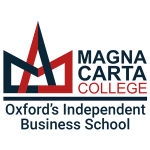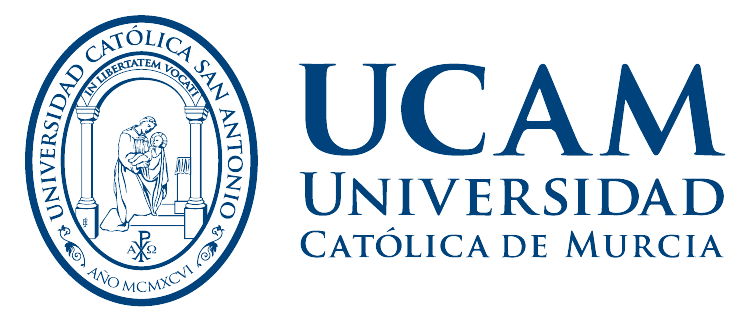The MBA programme in Supply Chain Management from Magna Carta College, in collaboration with UCAM, offers a well-rounded educational experience, equipping participants with essential skills and insights for effective supply chain management. This program emphasizes strategic thinking, enhancing organizational efficiency, and fostering leadership across the global supply chain sector.
One of the program’s key strengths is its focus on expertise built on evidence-based analytics and advanced research, addressing the complexities of modern supply chain management. This approach promotes adaptability, sustainability, and strategic problem-solving in a fast-paced, global market.
The curriculum also offers a global perspective, showing how organizations can leverage supply chain resources to gain a competitive edge internationally. Overall, the programme prepares future leaders to navigate the intricate dynamics of supply chain management, going beyond traditional approaches to shape effective, well-rounded decision-makers.
Programme Modules
The programme includes the following modules: (CO: Compulsory; OP: Optional; MD: Master’s Dissertation;)

MBA (Human Resource Management)

MBA (Artificial Intelligence and Blockchain)

MBA (Supply Chain Management)

MBA (Strategic Marketing Management)

MBA (Global
Management)

MBA (Accounting and Finance)

MBA (Health
Systems)
This module provides an in-depth exploration of financial markets, focusing on essential concepts in global finance. Students will analyze money flow, corporate investments, and tax implications, examining key areas like investment decision-making, risk and return, and the valuation of bonds and equities. Emphasis is placed on finance in international firms, including foreign exchange risk and financial statement analysis. The course also covers asset valuation, including intangibles and financial obligations. By the end, students will gain critical skills in cash flow analysis, equipping them to navigate financial markets effectively.
Objective of this Module:
- To understand how the numerous financial markets are connected.
- To appreciate the importance of such issues as taxation, transfer pricing, and foreign investment on the global flow of funds.
- To be able to measure the financial returns from investment.
- To be able to value a business.
- To examine the risks associated with foreign investment and to appreciate the techniques for managing the risk.
This module provides an in-depth overview of international marketing, equipping students with core concepts and strategies for global competition. Key areas include the marketing mix, segmentation, targeting, and positioning, with a focus on branding through the Customer-Based Brand Equity (CBBE) model. Emphasis is placed on marketing strategy, adaptability, and innovation. The module also covers advertising, strategic communication within the Integrated Marketing Communications (IMC) framework, and consumer research to analyze behavior and trends. Students will develop skills in creating international brand communication strategies tailored to diverse cultural contexts, with attention to marketing ethics.
Objective of this Module:
- To understand international marketing thought’s historical development from its roots in classical economics in the USA to the normative tradition promoted by academic/consultants such as Drucker, Levitt and Kotler in journals such as the Harvard Business Review.
- To generate understanding of popular normative marketing concepts such as the Marketing Mix and STP through application in practical case scenarios.
- To understand branding using Customer Base Brand Equity (CBBE)
- To appreciate the scope of marketing activity including Integrated Marketing Communications theory (IMC)
This module offers a thorough exploration of strategic management, covering core elements like unique activities, strategic positioning, and sustainable trade-offs. It addresses market positioning, competitive advantage through unique resources, and value chains across industries. The curriculum includes corporate strategy, focusing on resource allocation and control, as well as the international dimension, comparing strategies of multinational and national firms. Topics also include cooperative strategies, organizational learning as a competitive edge, and the influence of culture on strategy. The role of leadership in shaping and implementing strategy is emphasized throughout.
Objective of this Module:
- Evaluate the factors that need to be considered in analysing a firm’s external environment, the internal core competences of a firm and formulate a business strategy for a firm
- Understand the nature of corporate strategy.
- Understand the nature of international strategy
- Understand the different types of leadership
- Understand the relationship of leadership to strategy
This module explores the impact of structure and HRM on corporate success, emphasizing organizational design and the interconnection between individuals, the organization, and the environment. Key topics include labor market dynamics, recruitment, job design, and selection methods, with a focus on competency frameworks and psychometric testing. Strategic HR development is covered through training, performance management, and succession planning. The module also examines employee participation, relations, and reward systems, highlighting the influence of national cultures on HRM practices and the transfer of HR principles across borders.
Objective of this Module:
- Discuss critically the relationships between personnel management, employee relations and human resource management [HRM].
- Understand the nature of national cultures and their comparison with institutional and other differences between nations relevant to HRM.
- Evaluate the impact of internal and external (national and international) labour markets on the kinds of human resource strategies drawn up by organizations.
- Understand the impact of cultural differences on the processes of management
- Evaluate different methods of recruiting, selecting, developing and training staff cross-nationally.
This module provides an overview of the research process, starting with formulating research questions and writing effective proposals. Students will conduct a thorough literature review and explore both qualitative and quantitative research methodologies. Key topics include data collection, analysis techniques, and structuring research logically. Content analysis will be introduced as a method for interpreting textual data. Additionally, students will learn the thesis writing process, acquiring the skills necessary to conduct and present high-quality research.
Objective of this Module:
- Be able to devise a Research Question
- Be able to design and propose a viable research project
- Be able to understand the different methodologies employed in international management research
- Be able to make an informed choice of data collection methods for a given research area or research question
- Present research results in a systematic manner, write and structure a dissertation
This course focuses on supply chain management, highlighting the flow of money, information, and materials within the agile model. It examines market exchanges that drive demand and supply, which are crucial for economic success. The module covers the design and implementation of agile supply chains, including strategy execution, model analysis, and refinement, while also reviewing key strategic drivers, variables, and performance metrics.
Objective of this Module:
- Understand the Agility in the Business and supply chain systems
- Understand the standard shift from anticipation to agile models
- Understand the application of SCOR model to implement, monitor and improve supply chain decisions and agility.
- Evaluate functional drivers of the agile supply chain in a global competitive context.
- Analyse Concerted Planning, Forecasting and Replenishment (CPFR) techniques to enhance agile supply chain decisions in an organisation.
This module is designed for professionals focusing on the development and implementation of global commercial strategies and the optimization of supply chains. It addresses the complexities introduced by globalization, emphasizing the critical role of procurement and supply leaders in driving corporate success. The module highlights how market demand and supply exchanges are vital for economic prosperity.
Objective of this Module:
- Understand how strategic supply chain management can help corporate business strategy formulation and implementation.
- Understand and apply supply chain design tools and techniques
- Understand and apply techniques for achieving effective strategic supply chain management, as well as methods for measuring, improving, and optimising supply chain performance.
- Understand and apply the concept of commercial global strategy in organisation
- Examine the financial and regulatory implications for the global supply chain.
Students will be required to undertake their dissertation on a relevant topic, as agreed by the Programme Director/Dissertation Coordinator and student. It emphasizes the development of research questions, methodology, and critical analysis skills. Students will engage in literature reviews, data collection, and analysis, culminating in the production of a comprehensive dissertation. This module will contribute to enhancing students’ ability to conduct autonomous research and provide novel insights into their area of research.
Objective of this Module:
- Plan and manage a project
- Define the aims of this project
- Identify the data sources and methods appropriate to conduct the project
- Identify the potential pitfalls to conducting such projects
- Execute the dissertation plan
Key highlights of course
- Flexible Scheduling for Professionals
- Live Interactive Learning
- Strong Focus on Analytical and Strategic Thinking
- Comprehensive Career Services
- Relevant Curriculum Tailored to Industry Needs
- Global Perspective on Business Practices
- Global Perspective on Business Practices
- Lifelong Learning and Alumni Network
- Leadership and Management Training
- Entrepreneurial Thinking and Innovation
Interested? Let us Contact You
Meet our Faculty

Professor David Faulkner, Academic Dean
In today’s globalised world, advanced business education is crucial for success. Our MBA programme at Magna Carta College, in partnership with UCAM, provides you with the skills and knowledge to thrive in leadership or entrepreneurial roles.
At Magna Carta College, we focus on empowering students with the qualities needed to stand out in a competitive job market. Join our supportive learning community and take the next step towards a successful career.
We invite you to join our transformative learning
environment, dedicated to empowering and
guiding you on your journey towards a bright and
successful future!

Maggie Faulkner
Head of Partnerships

Murray Cooper
Programme Lead | Head of Quality

Dr Ali Raza Nemati
Deputy Programme lead / Lecturer

Sumbhal Manzoor
Lecturer

Dr. AR Shahid
Lecturer
Career Advancement with Our MBA Programme
Our Master of Business Administration (MBA) programme is designed to equip you with the advanced skills needed to excel in key managerial roles across various industries. From marketing and finance to human resources and business consultancy, the curriculum blends theory with practical, real-world applications to develop strategic thinking, leadership, and decision-making abilities.
Upon completion, graduates will be well-prepared to navigate complex business environments, taking on leadership positions or driving entrepreneurial ventures. The MBA programme fosters critical analysis and innovative problem-solving, ensuring that you are equipped to thrive in today’s dynamic and globalised marketplace.

I chose Magna Carta College because of its convenient learning process, which was suitable for my working schedule. I would definitely recommend MCC to all my peers. I had easy access to the learning program, documentation, etc. In August 2019, the qualification helped me to join my current company, with an increase in salary and status.
Umid Z., Level 7 Diploma






